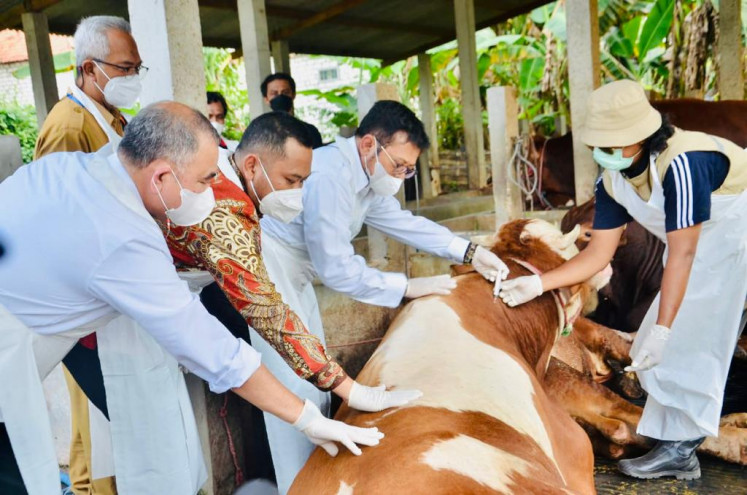Popular Reads
Top Results
Can't find what you're looking for?
View all search resultsPopular Reads
Top Results
Can't find what you're looking for?
View all search resultsCivil society calls for more women representation in politics
Finding female candidates for the legislative and executive branches remains a constant challenge, as political parties often flout the 30-percent minimum quota for women representation when they head into elections.
Change text size
Gift Premium Articles
to Anyone
C
ivil society groups are calling for an environment that is more conducive to increasing women participation in politics and reducing any stereotypes preventing it, whether that has to do with low representation among lawmakers or entrenched discrimination at the House of Representatives.
Finding more female candidates for the nation’s legislative and executive branches has remained a constant challenge, said Nurul Amalia Salabi, a researcher at the Association for Elections and Democracy (Perludem), at a live-streamed discussion in Jakarta over the weekend.
“Our Election Law has opened the door [for more women to be represented in politics] by stipulating a required minimum 30 percent quota for women representation at the central executive board level among political parties. But a study has shown that parties often pass up on these requirements leading up to an election,” Nurul said.
Instead, she added, parties often resort to recklessly picking women as members just to fulfill the requirements, such as roping in the wives of public officials.
Over the last 24 years, Indonesia has seen an upward trend in women’s representation holding seats at the House, but the number has never reached the 30 percent threshold. Thirty percent is a "sacred" figure because, according to the United Nations, only by reaching that threshold can women influence policy making processes.
Recent data compiled by Kompas daily’s research and development department (Litbang) showed that representation at the House in 1999-2004 only reached 9 percent, equal to 44 women, but it became 10.7 percent (65 women) in the 2004-2009 period, then 17.6 percent (100 women) in the 2009-2014 period, then it became 17.7 percent (97 women) between 2014-2019 and 20.9 percent (120 women) between 2019-2024.
Read also: More women in politics, pleaseSexism and discriminatory treatment is also experienced by female lawmakers, Nurul said, citing an instance in which women at House Commission II, which oversees home affairs, were given little space to voice their opinions compared to their male colleagues, especially during discussions on redistricting Papua’s newest provinces.



















